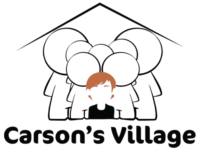“If you can’t fly then run, if you can’t run then walk, if you can’t walk then crawl, but whatever you do you have to keep moving forward.” — Martin Luther King, Jr.
We are never fully ready to face the finality of death. We may think we can prepare or practice in anticipation of loss, but it doesn’t really work; death is always a surprise and everyone reacts differently and with different emotions. Above and beyond the mind numbing sadness of loss, you may experience other sharp emotions. There may be an experience of extreme, unimaginable shock when faced with the truth that a loved one has died, especially if they were young, vulnerable, or the victim of an accident or violence. There could be utter disbelief that your loved one lost the battle with an illness. You may be consumed with anger directed at caretakers, or at the circumstances or choices of the deceased. You may feel an expanse of desolation or emptiness that your life has lost meaning since the one you love is no longer with you. All of these feelings can be true. All feelings around loss are real. All feelings around grief are “normal”. All feelings around love will find a way to sustain you.
For many, the first few days following a death are a blur. Nothing makes sense and there are more questions than answers… often, neither the questions nor the answers help. For the first few days all that needs to be done is eating, sleeping and showering. All of the details will fall into place. It helps to let others carry you at this time. There is so much “noise” in your head and in the world that you only really need to get to the next meal or couch.
In the weeks to follow there may be a cacophony of “shoulds” that others are offering to you. The “should” may or may not be helpful. Again, the only “shoulds” are eating, sleeping, showering and allowing people to help. For many, living under the covers is not an option, so you need to gently give yourself permission to do the bare minimum in order to sustain yourself and your family. Trust that your body and heart will tell you if you are not ready to tackle something big.
Months after your loss, you will open your eyes and not fully recognize the new shape of your life. Basic decisions may feel distorted, routines may feel irrelevant and old relationships may feel strained. Everything is being recreated within your new reality.
How do you cope? There is a lot written about the stages of grief and mourning, most notably On Death and Dying by Elisabeth Kübler Ross and Finding Meaning: The Sixth Stage of Grief by David Kessler. According to Kessler, the six stages of grief are:
- denial
- anger
- bargaining
- depression
- acceptance
- meaning
Not everyone will experience all six stages, and you may not go through them in this order. There is no “right” order to these stages or a timeline as to when you may experience these feelings. Here are a few things to consider as you experience your own grief process:
- Be patient with your body. Mourning is exhausting. Some days you will have energy and other days you will barely be able to move.
- Allow people to comfort you. People will try very hard to comfort you and they may be clumsy, self-centered, offer cliches, or simply talk about themselves. If you can remember that most people come from a place of love, then maybe some of their words and gestures will be easier to accept and their awkwardness forgiven.
- Try using a therapist or a support group. Sometimes you need to sample a few different people or techniques until you find the right fit. You don’t have to do this alone — keep shopping for the right support.
- Let someone be your anchor. Their job is not to direct or get in the way of your personal mourning. The anchor’s job is to keep you safe and afloat. Their mission is, perhaps, to give you a foundation for living so you are not able to injure yourself physically or mentally.
- Giving yourself permission to try new stuff in your own time. There is no mourning police. Your reality has shifted and you may need to try on different language, behaviors and rituals in order to get through each day.
- It’s ok to smile and cry, dance and crumble, plan and reminisce.
When you have lost a loved one, time becomes immeasurable. Your loss may feel like it happened a day ago and 10 years ago, both at the same time. Through your love and your life you will forever embrace the people you have lost.
~Sarah Messinger, Rabbi, MFT
